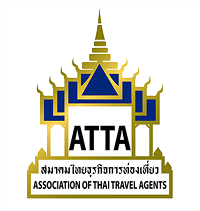Pattaya, Thailand, could see an influx of tourists if a casino gets built in the city.
If the law gets passed, Thailand could be Macao and Singapore's largest competitor by the end of the decade, industry watchers told CNBC.
Thailand's casinos could generate 187 billion Thai baht ($5 billion) in revenues, or 1% of the country's GDP once commenced, according to Maybank research.
Apart from state lottery or licensed horse betting, gambling is currently illegal in Thailand.
Thailand is working on a new game plan to boost foreigner arrivals and increase tourism spending: casinos.
The strategy has worked for Macao — which has overtaken Las Vegas as the world's largest gambling hub — and Singapore, with two successful 14-year-old casinos.
If Thailand's draft bill gets passed into law, the country could be Macao and Singapore's largest competitor by the end of the decade, industry watchers told CNBC.
"They've seen what building casinos did for Singapore, and the power of the gaming dollar in Macau. If Thailand does it right, this could boost its appeal as a tourist destination," said Ben Lee, managing partner of IGamiX Management and Consulting.
Tourism is a key driver of Thailand's economy, but growth remains sluggish. Tourist arrivals have not fully rebounded from the Covid-19 pandemic, and that will unlikely happen until Chinese travelers — in particular — return in full force.
Southeast Asia's second-largest economy welcomed around 28 million foreign visitors in 2023, far from the almost 40 million tourists in 2019.
"Thailand is a tourism juggernaut, it's the one tourism market in the region everyone fears. But the country is still struggling to recover its economy from the pandemic" said Lee.
In June, former Thai Prime Minister Srettha Thavisin ordered the drafting of a bill to legalize entertainment complexes in the country, a move that could boost tourism spending, increase employment, and revive the economy again.
Apart from state lottery or licensed horse betting, gambling is currently illegal in Thailand.
Although his daughter, Paetongtarn Shinawatra, has now replaced him as Thailand's new prime minister, experts said the bill will still likely be carried out.
"Thailand's political situation has been fluid, but that will unlikely take momentum away from plans to build casinos," Maybank Investment Bank analyst Yin Shao Yang said.
If the law gets passed, Thailand's casinos could generate 187 billion Thai baht ($5.5 billion) in revenues, or 1% of the country's GDP, according to Maybank research.
The Thai economy grew 1.9% in 2023, and is expected to grow 2.7% this year, the finance ministry said.
"Tourism in Southeast Asia is competitive, and countries in the region are looking at how they can position tourism as a pillar of economic diversification," said Gary Bowerman, director of travel and consumer intelligence firm Check-in Asia.
"Legalizing casinos will give Thailand a stronger positioning going forward, simply because its tourism economy is already so large and has so many visitors," Bowerman said.
What to expect
The most asked question by industry watchers are which Thai cities these casinos could potentially be in.
Although the government has not publicly announced proposed locations, analysts predict they might not be in the heart of capital Bangkok.
"Bangkok is already developed and there is no need for more development. I can't imagine there being any more empty land in Bangkok," Maybank's Yin said.
He added that casinos would be built in lesser populated areas, such as along Thailand's Eastern Economic Corridor where Rayong, Chonburi and Chachoengsao are.
This is unlike Macau's model, where "you've got a number of casinos clustered together like Vegas," Allan Zeman, chairman of property developer Lan Kwai Fong Group, told CNBC, adding that he is skeptical of the success of Thailand's future casinos.
"Many governments like to have casinos in underdeveloped places because they think it will help development," he warned. "But if you have a single casino in a developing city, it doesn't work the same."
Other known tourist spots like Phuket, Krabi, Chiang Mai and Pattaya are expected to have casinos as well, Maybank's Yin added.
"The government would want to squeeze out the highest capex [capital expenditure] out of the Pattaya project," Yin said, expecting $5 billion to be spent there.
In a broader push to extend capacity for tourists flying to Pattaya, the U-Tapao Rayong Pattaya International Airport announced in March that it will build a second runway, local media reported.
Check-in Asia's Bowerman added that Thailand will likely follow Singapore's model of building an integrated resort with activities catered for non-gamblers too.
"Look at Marina Bay Sands, you've got a fabulous bar on top, the infinity pool, hotels, museums, restaurants. Young people that aren't coming to gamble can benefit too."
A draft of the Entertainment Complex Act published by local media Bangkok Post in August stated that Thai citizens wishing to enter casinos in their country must pay an entrance fee of 5,000 Thai Baht ($147). This is similar to Singapore's casinos where locals have to pay 150 Singapore dollars ($115) to enter. Admission for foreigners will reportedly be free.
Among the proposed rules, casinos must also acquire a valid license to operate for up to 30 years, and operators must pay $5 billion baht to register, in addition of an annual $1 billion baht payment.
Bowerman emphasized that the Thai government might stipulate that U.S. operators keen to enter Thailand's gambling industry will have to work with Thai companies.
"There will be vested local interest and Thai companies will want to be involved," he said.
Will Macao remain No.1?
Casino experts share the same view that if Thailand successfully builds five to eight casinos across the country, it could eventually overtake Singapore's market in popularity and total revenue.
But Macao's casinos will still remain top, they say.
Revenue from casinos in Macao amounted to 114 billion Macanese Pataca ($14.16 billion) in the first half of the year, while the two casinos in Singapore brought in $2.53 billion in the same time, earnings statements from respective operators showed.
"If Thailand casinos are set up properly, it will without a doubt have the potential to overtake every other gaming jurisdiction in Asia, with the exception of Macao," IGamiX's Lee said, adding that "it can come very close" to Macao if Thai casinos are well-managed.
Bowerman echoed his comments, saying that Thailand is starting with a "blank piece of paper," and will certainly attract big U.S. investors.
"The casino industry is very lucrative and will bring in a lot of money. That will generate a lot of revenues and tax revenues to fund different elements of tourism," he told CNBC.




